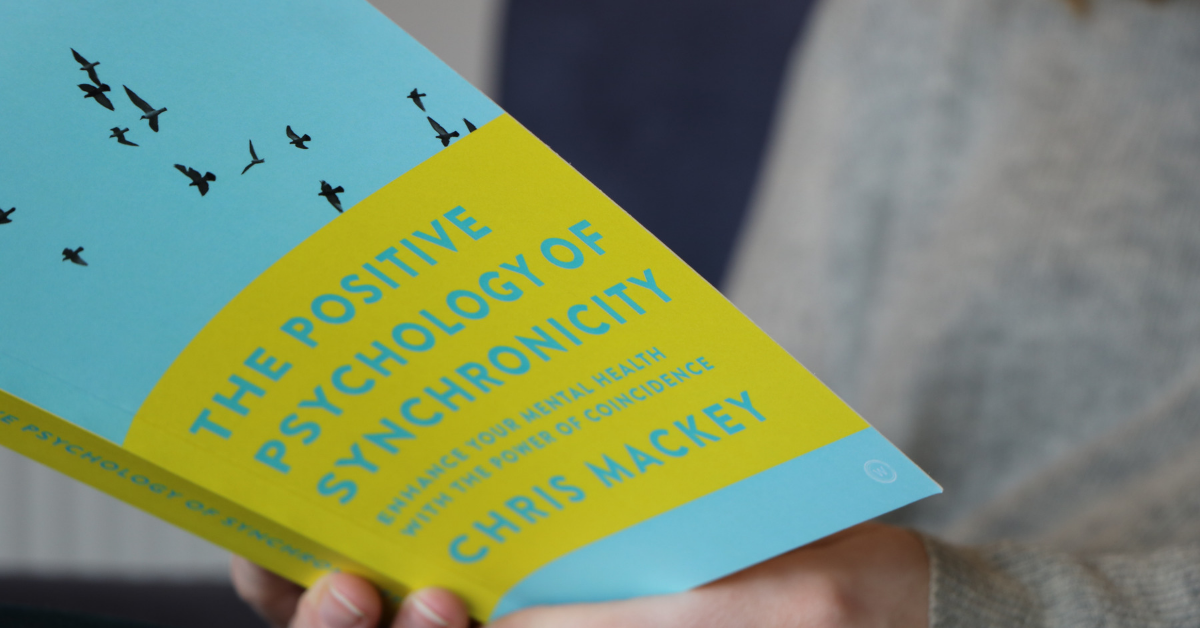Can a coincidence be more than just a coincidence? After all, some coincidences are so captivating, so uncanny and so striking that they seem “meant to be”. In my book on synchronicity I explore such weird and wonderful coincidences and their impact on people’s lives. In particular, I am interested in their potential to enhance our mental health, my main area of interest after practising for 40 years as a clinical psychologist.
Widely recognised examples of synchronicity include a clock stopping when its owner dies, seeing repeated number sequences – such as 11:11 on a clock, thinking of someone you haven’t seen for years and having them call you out of the blue soon afterward, or fortuitously encountering someone who is uniquely equipped to help you solve a challenging problem. Such incidents might be considered merely an entertaining curiosity. However, as suggested by Carl Jung, who coined the term synchronicity almost a century ago, I believe such meaningful coincidences can impact on our well-being in a number of profound ways.
In my book, The Positive Psychology of Synchronicity, I set out to illustrate this with personal experiences and case examples from my clients, couching my observations in the language of positive psychology, a science of well-being. The client examples include dramatic recoveries from depression, sometimes following a perceived encounter with a deceased relative. Other examples involved people’s lives being miraculously saved, leading to a marked turnaround in their outlook.
I believe synchronicity has a number of core benefits for well-being. Firstly, I believe it can be a guide for our optimal life path or destiny, bolstering our sense of purpose and meaning. Many people describe that they experience synchronicity, especially when frequent or striking, as affirming their life direction. Synchronicity might then serve as a “tick from the universe” that you are on the right track.
Synchronicity can also bolster our sense of connection to others and to the world beyond us. Uncanny timing in our encounters with others, also known as “propinquity”, can bolster our existing relationships and forge new connections that seem all the more meaningful.
Synchronistic experiences might encourage our use of intuition at a deeper level. The potential meaning of synchronistic incidents is often disguised or hidden, especially initially. It might take some time for the meaning to unfold, akin to the interpretation of dreams. Reflecting on such experiences can prompt us to use our intuition beyond merely a rational appraisal of our current circumstances. This can help unlock new insights and encourage more creative reflection on how we are living our lives.
Synchronicity also seems to provide us with a pointer, or window, to a higher organising force in the universe. Whether we consider this in terms of quantum physics or in terms of spirituality, synchronistic experiences can point to a larger context of influence on our lives. This influence often seems benevolent and affirming to those who experience it. Even when current circumstances seem detrimental, we might be more resilient if we have had prior experiences where things seemed “meant to be”. We might at least be more open to recognizing a future silver lining.
As a mental health practitioner, I am particularly interested in how synchronicity can promote an interest in spirituality, something often ignored in mainstream mental health services. There is increasing evidence of physical and mental health benefits that result from having a spiritual outlook, including increased longevity, greater engagement in life roles, enhanced relationships and greater resilience in the face of adversity.
In the mainstream mental health field we have an increasing focus on the profound interaction of mind and body, but there is relatively little emphasis on mind, body and soul. I believe that exploring synchronicity in our own and our client’s lives could bring more soul into psychology and psychiatry. The term “psychiatry” technically means “soul doctoring”, but there currently doesn’t seem to be much soul in psychiatry. I’m interested in promoting the development of the field of “positive psychiatry” following in the footsteps of the success of positive psychology over the past 15 years. In my view, this field would best combine a transpersonal framework with treatment approaches that are optimistic and uplifting.
This article first appeared as “The Positive Psychology of Synchronicity” in Watkins Mind Body Spirit magazine, Issue 60, Winter 2019.
Chris Mackey is a clinical psychologist and Fellow of the Australian Psychological Society with 40 years’ psychotherapy experience. He is author of The Positive Psychology of Synchronicity: Enhance Your Mental Health with the Power of coincidence, the 2nd edition released by Watkins Publishing in August, 2019. Chris received the 2019 Australian Allied Health Impact Award for his clinical research and media work.
Chris’s Psych Spiels podcast episodes on synchronicity include,
Synchronicity and Psychology (ep. 24)
(Positive Psychology, Science and Synchronicity (ep. 25)
Separating the Psycho-spiritual from Psychosis (ep.37)
The sustenance of spiritual experience (ep. 38)
Synchronicity supporting life choices (ep. 61)
Soaring with Synchronicity – feat. Lisa Buksbaum (ep.93)
Promoting Synchronicity in Ten Steps (ep.94)
Benefits of Sharing Sacred Stories (ep.98)
Belief in Ghosts is it Irrational? (ep. 99)
His short videos on synchronicity are available here.

